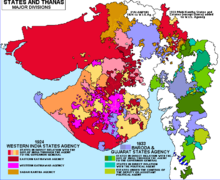User:ManUFootball/sandbox
The term Memon refers to muslim commercial cast descending from 700 families who converted to Islam in the mid 14th century. They are noted to have a long history in India for being successful businessmen and traders. [1]
History
[edit]Sindhi, Gujarati origins
[edit]
Circa early 20th Century
Memon lineage traces back to Lohanas of Multan, Sindh. The origin of the name comes from Maumin, which means “believer” and later evolved to present name Memon.[2] According to Anthovan, those Lohanas of Thatta who converted to Islam became Memons and were invited by Jarejho Roa Khanghar, ruler of Bhuj (1548–1584) to settle in Bhuj. It is from there that Kutchi Memons migrated to Kathiawar and Gujarat. Surat in Gujarat was an important trading center from 1580 to 1680 and Memons made their bounty there. Later, the Memons reached Bombay.[3]
Branches
[edit]Subgroups of Memons from Kathiawar
[edit]Languages
[edit]Social structure
[edit]Memons worldwide
[edit]Today, Memons are scattered throughout India with few thousands living in the port city of Karachi in Pakistan apart from significant communities in the United Kingdom, Canada, USA, Bangladesh, Sri Lanka, UAE, Saudi Arabia, Tanzania, Botswana, Namibia, South Africa, Malawi, Kenya, Mauritius, Singapore, Australia and Burma. In Karachi today there is a community of Memon people from Bantva and their descendants known as Bantva Memons. Also another prominent category is Halari Memon who works under the banner of Halari Memon General Jama'at. Halari Memon is a group of several subcategories and are also the follower of Hanfi Muslim.[4]
Memons were also one of three classes living in South Africa when Gandhiji went there in 1893, Memons were basically traders serving the Indian Indentured Labour class of South Africa. Memons are known for their involvement in business and philanthropy, with Memons having played a major part in the building of Pakistani industry, an increasing number of Memons are turning to professional occupations.
References
[edit]- ^ Levin, Sergey (1974). "The Upper Bourgeoisie from the Muslim Commercial Community of Memons in Pakistan, 1947 to 1971". Asian Survey. 14 (3): 231. doi:10.1525/as.1974.14.3.01p04292. ISSN 0004-4687. JSTOR 2643012.
{{cite journal}}:|access-date=requires|url=(help) - ^ Goolam, Vahed (2006). "'Unhappily Torn by Dissensions and Litigations': Durban's 'Memon' Mosque, 1880-1930". Journal of Religion in Africa. 36: 23–49.
- ^ Islamic Perspective, a Biannual Journal. A special issue on Bohras, Khojas and Memons. Ed. by Asghar Ali Engineer, Bombay, Institute of Islamic Studies. vol.1, Jan 1988, pp. 41-48 [1]
- ^ "City Nazim praises services of Memon community". Pakistan Press International. Asia Africa Intelligence Wire. October 13, 2003. Retrieved 20 January 2010.
